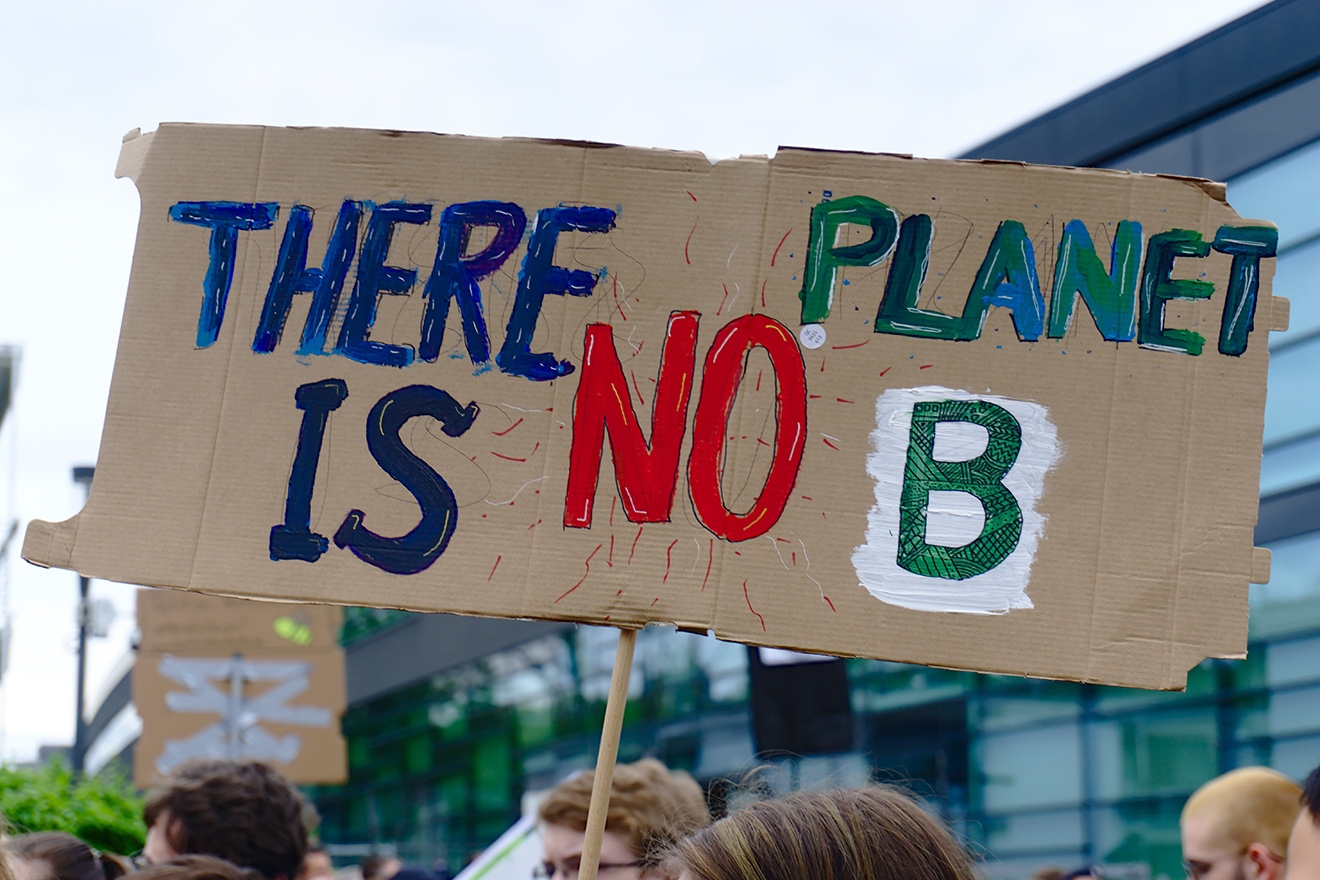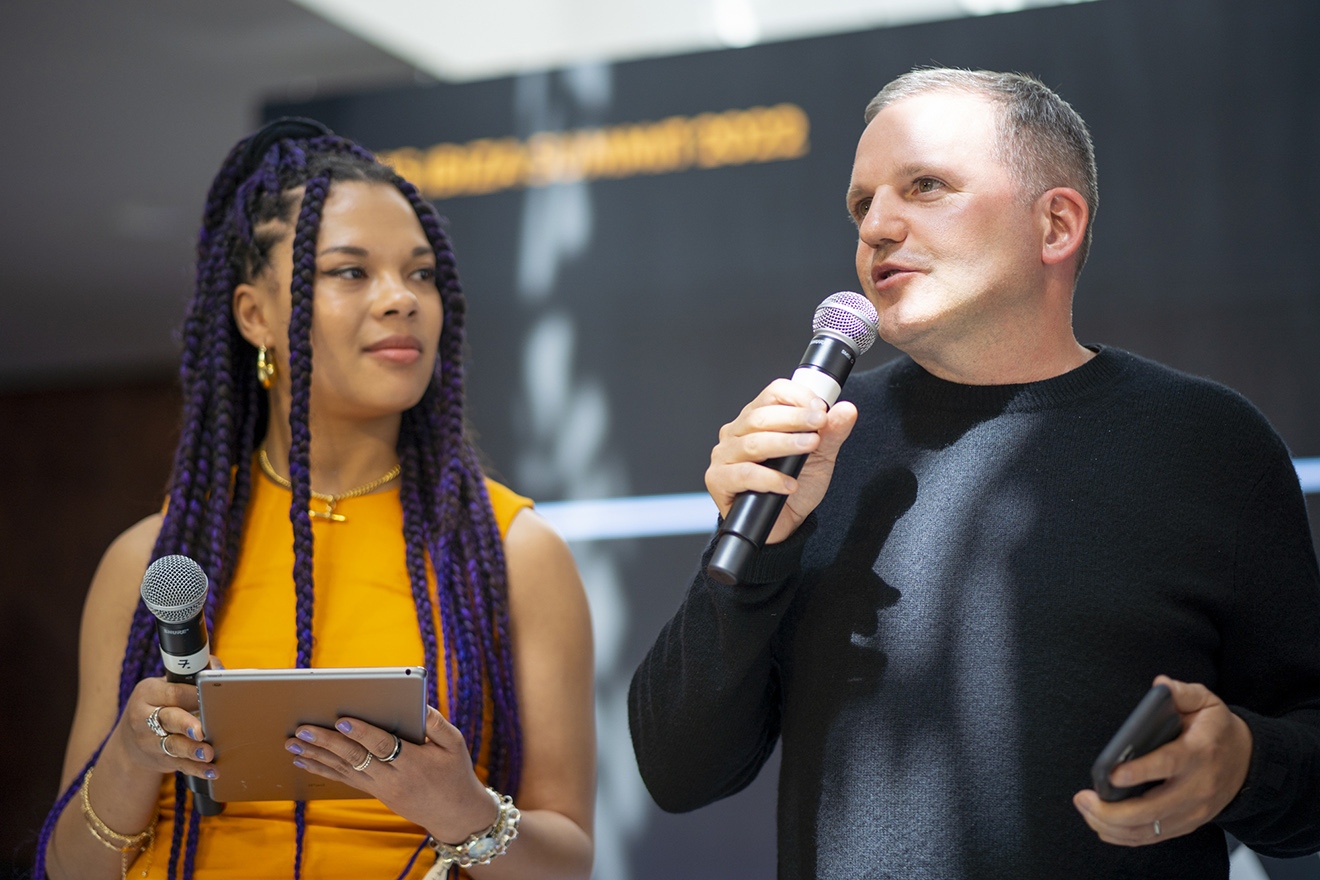 Features
Features
“The planet is our only dancefloor”: How dance music events are adapting to sustainability
With sustainability at the forefront of this summer’s events planning, Gemma Ross investigates how the dance music community is making an eco-friendly festival season a priority
A worrying statistic was published in 2021, offering a stark insight into the damaging impact that we - as rave-goers, city-hoppers and travelling musicians - make on the world. It revealed that in 2019, 1000 touring DJs took more than 51,000 flights around the world, tallying up to an equivalent amount of CO2 produced by over 20,000 households in a year. Sounds a little daunting, right?
In the wake of the recent Earth Day, mentions of global warming have more than likely made their way onto your phone screen, bringing startling statistics that further open your eyes to the damage being done to our planet. While the pandemic took focus as a more immediate threat and slowed down emissions for a time, as we head out the other side, tackling the climate emergency must be a primary concern. This year, the music industry is laying out stepping stones to a more sustainable future amidst the first full festival season since 2019 for most across the globe and the longest Ibiza season ever.
For some, those lengthy few years away from festival planning allowed time to reflect and build systems for change that will enable organisers to adapt more easily to sustainable measures. It was during this time that Brian Eno launched the music industry initiative EarthPercent, Massive Attack commissioned a study into the industry’s carbon footprint, and a nightclub in Glasgow trialled using dancers' body heat to power the venue. Alongside hundreds of other initiatives, tools, summits, studies, and blueprints, the music is slowly taking charge of these issues, but the industry’s impact on climate change still weighs heavily.

An agenda-setting event in the music calendar - Ibiza’s International Music Summit - has made green issues a key focus. Each year, thousands flock to the White Isle to take part in panels, open conversations and parties across three days, signalling the launch of the Ibiza season. This year, IMS focuses on a handful of paramount topics, but the climate emergency is arguably the most pressing.
“When I think back to launching IMS those 13 years ago, we focused on more industry-related topics. As time went on, other issues started to become more of a priority and we became more conscious of our role and responsibility of putting on an event like this,” says Ben Turner, co-founder of IMS alongside long-serving partner, Pete Tong. “Because of the nature of what conferences do and stand for, we felt it was our duty to help educate, inform and inspire, and look beyond those issues”. Each year, IMS invests interest into the hard-hitting topics spanning sexual harassment, mental health, diversity and inclusion, and climate change. The latter discussion takes centre stage this year with multiple conversations surrounding sustainability and environmentalism within the industry.
Read this next: How dance music can limit its environmental impact
“Just before the pandemic, I remember very clearly curating IMS 2020 - I felt that year the world really woke up to the fact that there is an ever decreasing and vastly emerging timeline in which we can save this world. The music industry wasn’t doing enough, the electronic industry certainly wasn’t doing enough, but I felt like the world turned that year and this was the number one priority for everybody,” Turner tells us. This year, IMS introduced the Eco Badge initiative encouraging festival-goers to travel more sustainably - whether it be by bicycle, ferry, or train. “We ask people travelling over to show a picture of their ferry ticket and they get a heavily discounted price in return. We’ve also added an eco-tax onto the delegate badge, so we’re contributing a certain amount from every ticket sale toward this area with beach cleans and generally putting it back into the system.”
While Turner admits that the International Music Summit is only a fraction of the way toward becoming fully circular, he knows that the end goal is in reach. “We’re about 30% of where we want to be,” he says. “Building one of our stages, Dalt Villa, almost completely environmentally friendly was a big idea, it’s our big trophy event and finale. It’s on a world heritage site so as the next few years evolve, that will become one of our next big targets.”
Such schemes were set in place after consultation with the team behind A Greener Festival, one of the industry’s longest-running sustainability organisations. Through training and education, award initiatives, conferences, and supplier directories, A Greener Festival has helped the industry move one step closer to an eco-friendly future. “I’ve been pleasantly surprised by how many festivals are taking sustainability on board this year. We’ve seen more festivals than ever applying to the Greener Festival Awards, everything is pushing in the right direction,” A Greener Festival’s Co-founder, Claire O’Neill, tells Mixmag. "The research that we first did in 2005 proved that this is actually what audiences want.”

Transport is a major contributor to emissions, accounting for around 20% of global CO₂ emissions, and this figure is expected keep rising as the global population grows. “Artists have a big impact when they travel from place to place, most of the time they need to fly because they have a tight schedule,” says DGTL Festival’s Sustainability Manager, Mitchell van Dooijeweerd, shortly after the Amsterdam event’s eighth edition. Each year, DGTL works toward one main goal: becoming the world’s first circular electronic music event — meaning every material and resource used is put straight back into the event itself. DGTL claims to close material loops, eliminate CO2 emissions, and use renewable energy to create a 100% sustainable event. The festival’s 2022 edition officially marked that milestone goal with a momentous breakthrough over Easter weekend, sealing it as an entirely sustainable festival through and through. “It’s really important for artists to show and influence fans that it’s possible to lower your impact. So, we launched The Climate Gig,” says van Dooijeweerd.
The Climate Gig, another reformist initiative forged during the bleak years of the pandemic, pushes musicians to take travel more seriously. “We bought sustainable aviation fuel for artists, they pay 50% and we pay 50% - we made it accessible for everyone in the world and every event. We’re hoping to get the whole music industry on board,” he says. Much like Brian Eno’s EarthPercent counterpart, The Climate Gig encourages those in the industry to pledge toward sustainable resources while offering advice to both music fans and artists. Tackling this new scheme alongside Mitchell is Camille Guitteau, Managing Director at Bye Bye Plastic, a foundation looking to rid the music industry of all single-use plastics. “Very simply, the planet is our only dancefloor,” Guitteau tells us. “It’s important for every industry and for every individual [to be eco-friendly] right now, it’s our responsibility for each of us, both past and future generations.”
Read this next: Sustainable sesh: How clubs and festivals are boosting the green agenda
“To me, it’s the responsibility for the music industry who want to continue having fun and partying and enjoying music on this planet [to promote sustainability] - let’s make sure we do this responsibly for anyone to enjoy today and continue enjoying tomorrow,” Guitteau adds. The Climate Gig pushes sustainably produced fuel from SkyNRG onto the music industry: “What is needed today is the demand for this fuel to grow. As long as it does that, we can continue researching more options with more airlines taking it on board,” Guitteau explains. “The goal is to make sure this industry knows that there are solutions available and we can all do our part to stimulate this next generation.”
“A massive part of this is education,” agrees Ben Turner. “There are a lot of good examples of people doing good work, but it’s an educational process which we need to dedicate more time to. The artist community also have a huge role to play. The planning of touring consciously is really important right from the artists to the agents, promoters, and logistics teams. We’ve got to start making some big moves as an industry, which is why we’ve got people like Brian Eno talking at IMS — someone who’s put a huge amount of time and energy into educating and inspiring as someone the electronic world looks up to.”

Other large scale events are picking up the slack from elsewhere and beginning to hammer down on this agenda for a circular future. Paris’ We Love Green, Northampton’s Shambala, and the Brecon Beacons’ Green Man each take their responsibility seriously, to name a few, with initiatives cutting out single-use plastics, finding alternate power sources, using compost loos, and creating space for environmental innovation.
So, how can we, as music fans, artists, and industry figures, help to combat the climate emergency on our own accord? “Organisers should be looking at ways to reduce energy usage, whether that’s technical production through to catering. Something that the audience can do is choose plant-based food options on-site, and when travelling, we should be taking a hard look at why and how we chose to get somewhere. By cutting down flights or investing into something that will balance those emissions, it could help dramatically,” O’Neill says. Elsewhere, festival-goers could look into their use of plastic, The Climate Gig’s Guitteau says. “Bio Plastic made a travel kit both for artists and travellers so that when you’re on a trip, you can find alternatives to your deodorants, your earplugs, and so on.”
Read this next: 10 ways festivals are tackling social and environmental issues
Plastic has also been an issue in the past for DGTL, something that has now been completely eliminated from the festival. Dooijeweerd tells us that when visitors enter the site, they’re asked to discard all waste materials at the entrance which are then taken to recycling stations. “We have control over a lot of things, but not of what our visitors do. They can cooperate with the systems in place during our events, for example, the hard cup system that we’ve set up. Everybody should bring back their cups and not throw anything on the floor, if you smoke, don’t put your cigarette butts on the ground,” he explains.
We all have a responsibility to protect the planet, and the climate emergency won’t disappear without our help. By making yourself heard, partaking in the schemes in place, and taking a self-reflective look at your choices, the music industry can do its part as well as any. Toward the end of last year, some of the biggest record labels clubbed together to pledge toward net-zero emissions. Now, it’s our turn to help that work continue.
Find more resources and ways you can help below:
EarthPercent
A Greener Festival
Bye Bye Plastic
SkyNRG
The Climate Gig
Julie’s Bicycle
DJs For Climate Action
CHOOOSE
Revolution Foundation
International Music Summit
Gemma Ross is Mixmag’s Editorial Assistant, follow her on Twitter



